Making a Just Society | Research + Insight
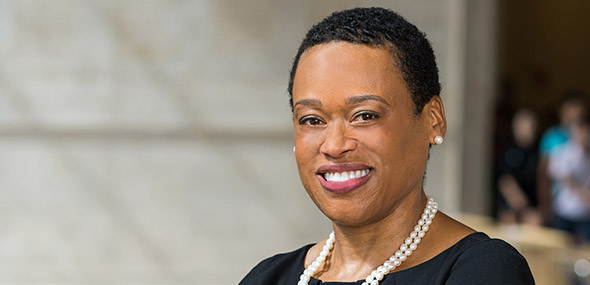
Melissa Nobles; photo by Justin Knight
"Whatever our background, a fair and viable justice system must be one of the bedrocks of American democracy."
— Melissa Nobles, Professor of Political Science; MIT Chancellor; Kenan Sahin Dean, MIT School of Humanities, Arts, and Social Sciences (2015-2021)
Where do we go from here?
Melissa Nobles, Tracey Meares | On the legacy of segregation |
Police brutalities and the Black Lives Matter movement are illuminating the differences that white Americans and Americans of color experience in their everyday lives. Melissa Nobles, Professor of Political Science, and Dean, MIT School of Humanities, Arts, and Social Sciences, speaks with Yale Professor of Law Tracey Meares about the historical and structural forces at work.
Story + Video
Sandy Alexandre, Literature | MIT Vigil
Insight, analysis, and inspiration from Professsor Alexandre speaking at the MIT Vigil responding to racism and systemic injustice in the US.
Alexandre remarks begin at 47:46 | Alexandre webpage
Malick Ghachem, History | MIT Vigil
Insight and guidance for movement success from Professor Ghachem, speaking at the MIT Vigil responding to racism and systemic injustice in the U.S.
Ghachem remarks begin at 40:41 | Ghachem webpage
Ariel White, Political Science | With ten leading scholars of race and policing
An extraordinary conversation among ten leading scholars of race, policing, and the U.S. criminal justice system — convened and led by Hakeen Jefferson, of Stanford, and including Ariel White, MIT Assistant Professor of Political Science (speaking at 25.49 & 1:08:07).
Conversation on Justice | Ariel White website | Hakeen Jefferson website (Stanford)
Blueprint Labs | Studying school quality to increase equality
Education has long been perceived as a great leveler in the United States, but in time of growing economic inequality, millions now wonder if schools can still be a platform for success. Via the MIT Blueprint Labs (formerly named SEII) MIT economists conduct research that informs education policy in major U.S. cities.
Story at MIT News | MIT Blueprint Labs
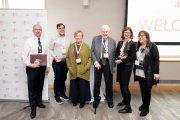
Shining a spotlight on local science journalism
The Knight Science Journalism program’s Victor K. McElheny Award honors outstanding local and regional journalists’ reporting on science, public health, tech, and the environment.
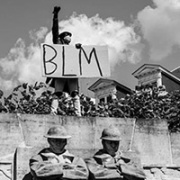
MAKING A JUST SOCIETY
Sustaining the Momentum
Edited by M. Amah Edoh, MIT Professor of Anthropology and Liliane Umubyeyi, co-founder, the African Futures Lab
What will it take to sustain the momentum of movements for racial justice sparked in 2020? Ideas in a new essay collection co-edited by Amah Edoh, MIT Professor of Anthropology, and Liliane Umubyeyi, co-founder/co-director of the African Futures Lab.
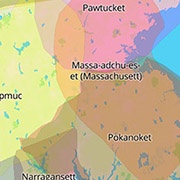
MAKING A JUST SOCIETY
Indigeneity at MIT | A Conversation with David Shane Lowry '03 ('07)
Dr. Lowry is the Distinguished Fellow in Native American Studies at MIT, tasked with leading a conversation at MIT about the actions and responsibilities of the Institute in the history and current realities of Native American communities. A member of the Lumbee Tribe who trained as an anthropologist at MIT, Lowry focuses his research on people and institutions that impact personal and cultural healing.

POLITICAL SCIENCE
Making voting easier for previously incarcerated people
People rarely vote after being incarcerated. Associate Professor Ariel White wonders what can be done about it.
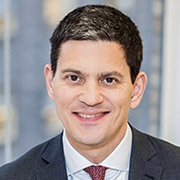
DEMOCRACY | HUMAN RIGHTS
Rt. Hon. David Miliband SM ’90 receives the 2021 Robert A. Muh Alumni Award
His award lecture proposes an "accountability agenda" to restore respect for human rights, democratic norms, and the rights of civilians in combat zones.
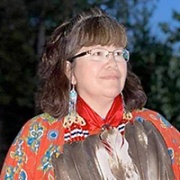
SOLVING CLIMATE
Two-Eyed Seeing
In this interview, Patricia Saulis, MLK Visiting Scholar and Executive Director of the Maliseet Nation Conservation Council, discusses drawing on both Indigenous and Western knowledge systems to develop more sustainable ways to live on the planet.

STRENGTHENING DEMOCRACY
The miracle and tragedy of the 2020 election
Professors Charles Stewart III, MIT, and Nathaniel Persily, Stanford
In a must-read analysis, two of the Nation's leading election administration experts discuss: how, during a pandemic, U.S. election administrators organized the most secure election in American history; the "big lie" that catalyzed violence at the Capitol; and current threats to U.S. voting rights and democracy.

U.S. HEALTHCARE SYSTEM
What has the pandemic revealed about the U.S. healthcare system — and what needs to change?
Seven MIT scholars see lessons and opportunities for U.S. healthcare
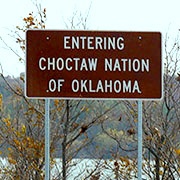
MUSIC AT MIT
MIT composer Charles Shadle releases a new work, "Choctaw Animals," honoring his Native American heritage.
Shadle is arguably the most visible living classical composer in the Choctaw tribe, and he does not want to be the last. Thinking of young Choctaw children in rural communities he says, “To some extent, I can say, you could be a composer too. Your voice can be heard.”
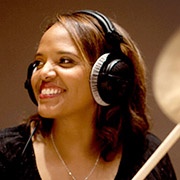
MAKING A JUST SOCIETY
Advancing social justice through music and media
It Must Be Now! explores subject matter that includes institutional racism; environmental, economic, gender, and health injustices; police brutality; and abolitionism.
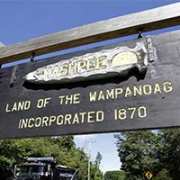
MAKING A JUST SOCIETY
Native American and Indigenous scholarship, education, and creativity in MIT's humanistic fields
This collection highlights works by and about Indigenous and Native American faculty, students, alumni, and visiting scholars in the humanities, arts, and social science fields in the MIT SHASS community.
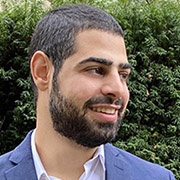
MEET OUR STUDENTS
Profile | Nasir Almasri '21
Political science PhD candidate studies conflicts that emerge at the intersection of politics and religious traditions, with a focus on humanizing those involved.
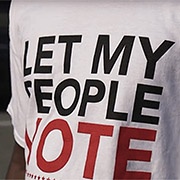
MAKING A JUST SOCIETY
3 Questions: Ariel White on voter rights and re-enfranchisement
"The problems in the Florida case have drawn our attention to how widespread, how life-disrupting, and how racially-disparate the experience of legal debt is for people who have passed through the criminal legal system."
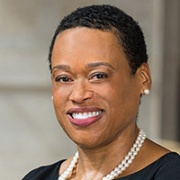
MAKING A JUST SOCIETY | RESTORATIVE JUSTICE
Unearthing the stories of yesterday’s George Floyds
"When we call the victims’ descendants to share our findings, they tell us ‘I never thought I’d get this call.’ The scars remain, and luckily, because we have found documents, so does proof." — Melissa Nobles, Professor of Political Science; MIT Chancellor 2021 - ; Kenan Sahin Dean, MIT School of Humanities, Arts, and Social Sciences 2015-2021
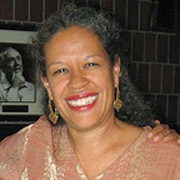
MAKING A JUST SOCIETY | DEI
Everyone's work
Professor of Writing Helen Elaine Lee calls for more engagement in creating racial justice.
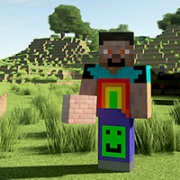
THE MEANINGS OF MASKS
The mask is a badge of honor | Eric Klopfer
Comparative Media Studies
"In this pandemic era, what a mask really says is, ‘I care about YOU.’ The mask indicates that you are protecting the health of others during a crisis."
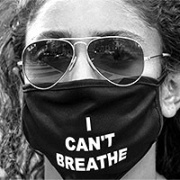
THE MEANINGS OF MASKS
A collective cry for justice | Graham M. Jones
Anthropology
"The mask is one of the most important human artifacts in all of anthropology. It is a tool of transformation that allows its wearers to transcend themselves, taking on timeless roles in ritual dramas, and as actors in a broader social drama."

RACIAL EQUITY AND SOCIAL JUSTICE
A Path Forward
Statement from the faculty of the MIT Comparative Media Studies/Writing program
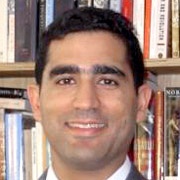
MAKING A JUST SOCIETY
Voices from the MIT Community Vigil
Historian Malick Ghachem delivers remarks on a divided moment.
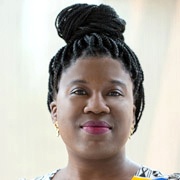
MAKING A JUST SOCIETY
Words + Words + Words
Sandy Alexandre, Associate Professor of Literature, honors and thanks all of the justice-seeking words that came before our 2020 ones.
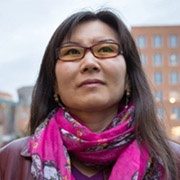
EDUCATION
An ethnology of disruptions in Cambridge, MA
At American Ethnologist, MIT anthropologist Manduhai Buyandelger tracks racism, virtual realities, and world building in Cambridge during the Covid-19 pandemic
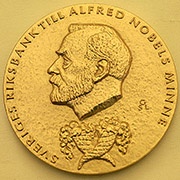
HONORS AND AWARDS
MIT economists Esther Duflo and Abhijit Banerjee win the Nobel Prize
Duflo and Banerjee, whose work has helped transform poverty alleviation, are co-winners of the 2019 Sveriges Riksbank Prize in Economic Sciences in Memory of Alfred Nobel, along with another co-winner, Harvard University economist Michael Kremer.
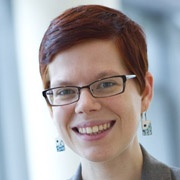
VOTING AND DEMOCRACY
3Q: Ariel White on the impact of incarceration on voting
"The story here is not just about whether people are legally allowed to vote, but about whether they are practically able to vote, whether they know they're allowed to vote, and whether they think they have any reason to do so."
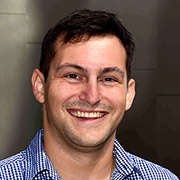
VOICES OF MIT SHASS GRADUATE STUDENTS
Meet Marc Aidinoff, PhD candidate
"What does it mean when civil rights become about access to computers and the Internet? When lack of Internet access is considered a form of poverty? These questions were getting under my skin. I wanted to know how social and economic policy were tied to changing ideas about technology."
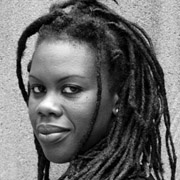
21ST CENTURY CITIZENSHIP
The world as we think the world should be | Meet theater director Charlotte Brathwaite
Charlotte Brathwaite's theater works in response to today's culture of violence violence is inspired by James Baldwin's message of universal love: "If I love you," he said, "I have to make you conscious of the things you do not see."
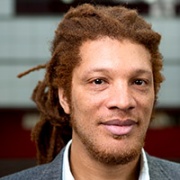
ETHICS, COMPUTING, AND AI | PERSPECTIVES FROM MIT
A Dream of Computing | D. Fox Harrell
"We must be vigilant stewards of the future of computing at MIT. We must reimagine our shared dreams for computing technologies as ones where their potential social and cultural impacts are considered intrinsic to the engineering practices of inventing them."
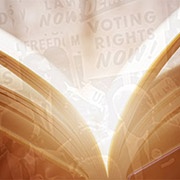
21st C. CITIZENSHIP | LEGACY OF SLAVERY
The Task of History
MIT historians discuss the power of historical knowledge to help make a better world.

MAKING A JUST SOCIETY
MIT and the Legacy of Slavery Project
Stories, Videos, Community Dialogue
“I believe the work of this class is important to the present — and to the future. Something I have always loved about the MIT community is that we seek, and we face, facts. What can history teach us now, as we work to invent the future? How can we make sure that the technologies we invent will contribute to making a better world for all?" — L. Rafael Reif, President of MIT
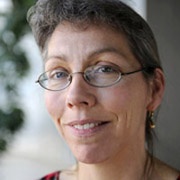
Q&A with economic historian Anne McCants
On the link between innovation and opportunity
"Economic history viewed on a very long timescale tells us that innovation and population size/density are highly correlated. A shorter time horizon tells us that population size alone is not enough. Rather, it is in populations where lots of people are both permitted and capable of 'having a go,' where innovation thrives best."
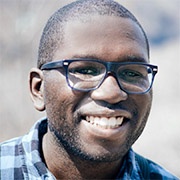
21ST CENTURY CITIZENSHIP
Race and Racism in the 2016 Election
Slate chief political correspondent Jamelle Bouie joins MIT’s Seth Mnookin to explore how race and ethnicity framed the election.
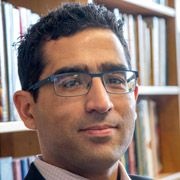
THE POWER OF HISTORY
3 Questions with historian Malick Ghachen
On finding root causes: how history helps us solve today's issues
"One of the principal ways historians contribute to problem-solving work at MIT and elsewhere is by helping to identify what the real problem is in the first place. When we understand and articulate the roots and sources of a problem, we have a much better chance of actually solving it."
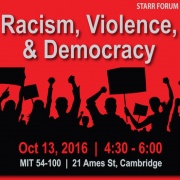
MAKING A JUST SOCIETY
Racism, Violence, and Democracy
Video of a panel discussion on November 16, 2016, sponsored by the MIT SHASS Center for International Studies.
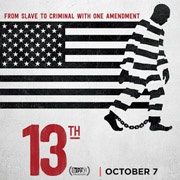
MAKING A JUST SOCIETY
Screening of the film "13th"
America makes up 5% of the world's population, yet locks up 25% of the world's prisoners. Ava DuVernay's acclaimed film "13th" explores how we got here. Screening sponsored by MIT SHASS Program in Women and Gender Studies
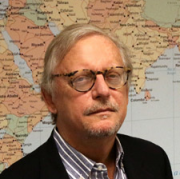
MAKING A JUST SOCIETY
Election Insights 2016 | John Tirman on Immigration
"Negative attitudes toward immigrants have many roots. The economy and 'job stealing' have often ranked high on the list of grievances, but several studies — including one just released by the National Academy of Sciences — demonstrate that immigrants of all kinds boost the U.S. economy overall and hurt few if any native-born Americans. So, what really mobilizes anti-immigrant attitudes?"

MAKING A JUST SOCIETY
Election Insights: Ariel White on Racial Attitudes and Bias
"There's evidence that government is less responsive to people of color. In my work with Julie Faller and Noah Nathan, we have found that election officials are less likely to respond to informational questions about voting eligibility when they're sent from Hispanic-sounding names than when they're sent by non-Hispanic white names. These officials didn't respond rudely to Hispanic questioners; they simply didn't write back as often, and didn't answer their questions as well."
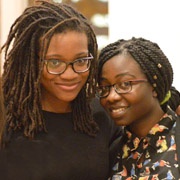
BUILDING COMMUNITY
My Sister's Keeper builds community for black women at MIT
"Being a black woman at MIT is a very particular experience. To compare that with others going through that is very powerful and uplifting," said Itoro Atakpa, a senior in mechanical engineering. My Sister's Keeper supports black women students with social, professional, and mentoring relationships.
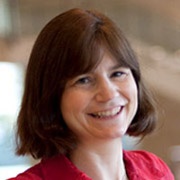
HEALTH CARE | EQUITY
3 Questions with political scientist Andrea Campbell
Healthcare is both a political and a technical issue
"Any initiative to address health and health care goals must wrestle with and address the enormous disparities that exist in health coverage, access, and outcomes across racial and income groups in the United States. It’s as if poor or black Americans are living in a different country, and in terms of poverty, health insurance, and health care access, effectively they are. This is a political and social problem as much as a technical one."
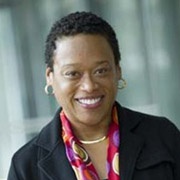
RESEARCH TO POLICY | ADVANCING JUSTICE
3 Questions | Melissa Nobles on advancing racial and restorative justice
Melissa Nobles, Dean of the MIT School of Humanities, Arts, and Social Sciences, and Professor of Political Science, researches historical injustices in democracies. MIT SHASS Communications spoke with Nobles in 2015 about the ongoing aftermath of shooting deaths in Ferguson, New York, and Cleveland, and what her research suggests about the current efforts to advance civil rights in America.
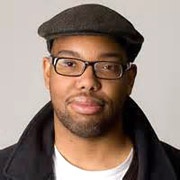
MAKING A JUST SOCIETY
Writer Ta-Nehisi Coates dazzles during two years as Visiting Scholar
“What I tell my students is that you here at MIT have access to great knowledge—more knowledge than 99.9 percent of people who have ever been on planet Earth, and I think you have some sort of moral duty to learn how to communicate that. Knowledge is power; power shouldn’t be hoarded.”
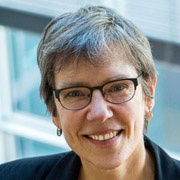
MAKING A JUST SOCIETY
Q&A with Philosopher Sally Haslanger: What is "natural," and what is "social?"
Professor of philosophy and Director of Women's and Gender Studies at MIT, Sally Haslanger recently published Resisting Reality: Social Construction and Social Critique (Oxford University Press), a collection of essays on gender and race. We caught up with her to talk about the rich ideas in her most recent book.